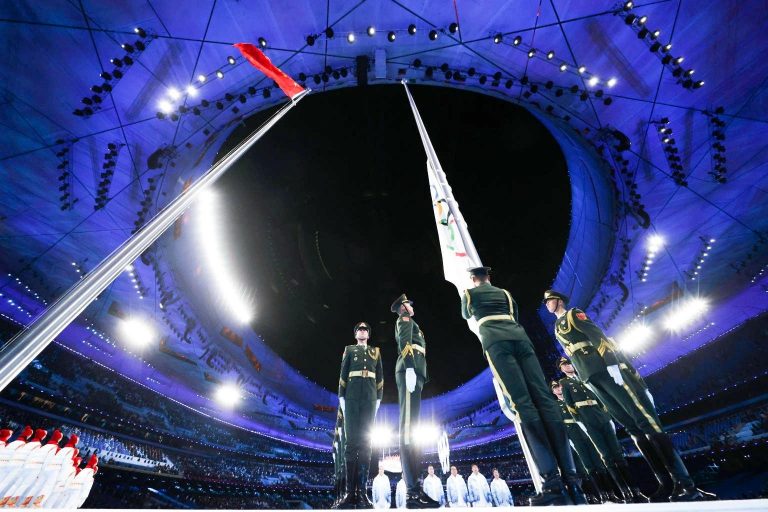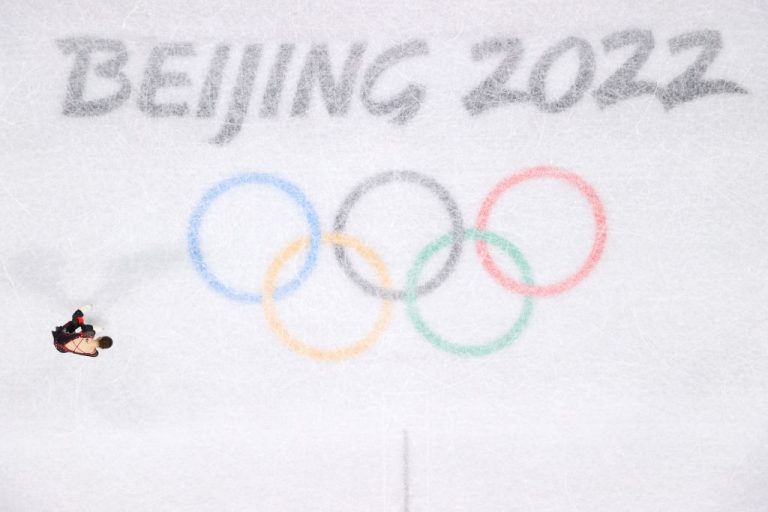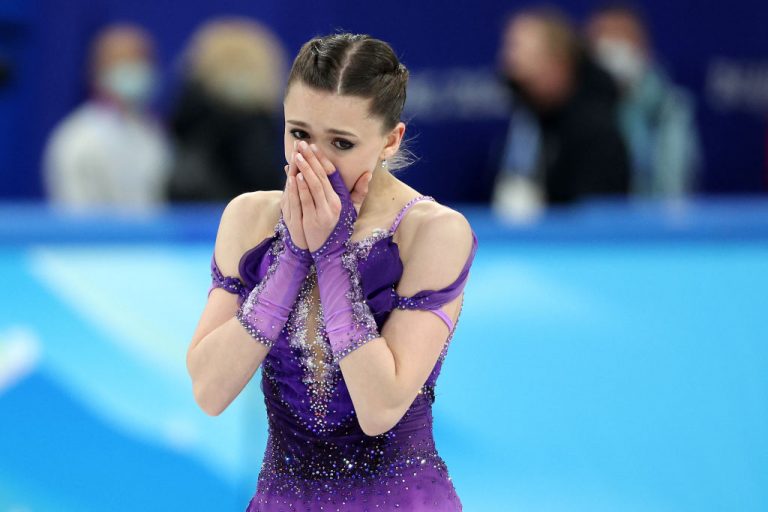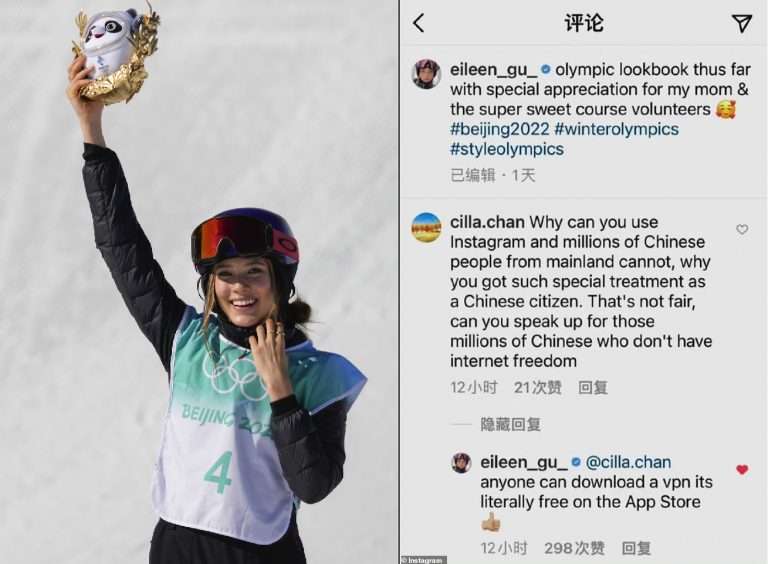The Winter Olympics in Beijing, like the Summer Games in 2008, was intended to showcase to the world the supremacy of the Chinese Communist Party (CCP) and bolster its ruling legitimacy. To ensure success, the Party spent just over $3 billion on the Games and mounted a propaganda offensive.
Despite its best efforts, Beijing has not managed to keep the Games scandal-free. Controversies have emerged that either embarrassed the CCP regime or exposed its brutal, deceptive nature, undermining the image of the Xi Jinping leadership and the communist authorities at large.
Diplomatic boycotts
The United States, Australia, Canada, Japan, the United Kingdom, and several European countries announced a diplomatic boycott of the Beijing Winter Olympics before the Games to protest the CCP’s persecution of the Uyghurs and other ethnic minorities in Xinjiang.
The diplomatic boycott came across as more of a publicity stunt than a serious effort to censure the Party over its gross human rights abuses. High-ranking government officials did not attend the Games, but athletes were allowed to compete. This sharply contrasted with full boycotts during the Cold War era, notably the U.S. non-participation in the Moscow Olympics in 1980 over the Soviet Union’s invasion of Afghanistan. Regardless, the absence of senior officials from the world’s only superpower and other influential countries at the Beijing Games took some of the shine away from the CCP’s marquee event.
The Xi leadership sought to compensate for the diplomatic boycotts by inviting high-ranking officials from 25 countries to visit Beijing around the opening of the Winter Olympics. The move, however, appeared to draw mockery from forces opposed to Xi within the Party. Duowei News, a Beijing-based overseas Chinese language media that is known to carry messaging from various CCP elite factions, pointed out in a Feb. 4 report that six of the 25 countries are not participants in the Games. Those countries’ “diplomatic actions unrelated to the Olympics are still notable,” Duowei said, adding that North Korea was also an “unexpectedly absent ally.”
Success
You are now signed up for our newsletter
Success
Check your email to complete sign up
READ MORE:
As Challenges Mount, China’s Xi Calls for ‘Self-Revolution’
In 2022, Expect China’s Economy to Worsen Further
Censorship, surveillance, thuggery
The CCP made it crystal clear that it would not tolerate unwanted political expression during the Games. “Any behavior or speech that is against the Olympic spirit, especially against the Chinese laws and regulations, are also subject to certain punishment,” said Yang Shu, the deputy director general of international relations for the Beijing Organizing Committee, in a press conference on Jan. 18.
Major U.S. or Western companies were onboard with Beijing’s effort to “sportswash” the Winter Olympics. The corporations mostly ignored appeals by human rights activists to drop either their sponsorships or broadcasts of the Games, as well as criticize the PRC authorities for repression in Xinjiang, Tibet, and Hong Kong. Meanwhile, NBC, which has exclusive rights to broadcast the Olympics through 2032, rejected an ad critical of the CCP by Florida congressman Mike Waltz and featuring outspoken NBA player Enes Kanter Freedom.
Yet the CCP still struggled to hide its totalitarian proclivities during the Games despite corporations and athletes being on their best behavior. On the opening day of the Winter Olympics, a security guard wearing a red armband unceremoniously shoved camera Sjoerd den Daas, a correspondent for Dutch public broadcaster NOS, off screen as he was finishing up a report outside the Beijing National Stadium. Marcel Gelauff, editor-in-chief of NOS News, described the incident as a “painful illustration of the state of press freedom in the country.” The International Olympic Committee (IOC), however, opted to be politically correct and dismissed it as a “one-off incident.”
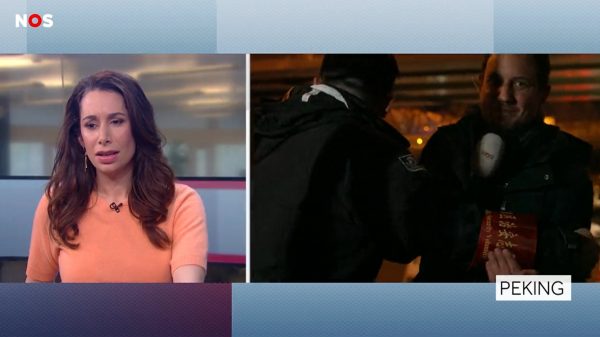
The IOC also failed to speak up about the safety of Chinese tennis star Peng Shuai despite signs that the CCP had placed her under some form of internal control after she went public with a #MeToo allegation against former Politburo Standing Committee member Zhang Gaoli. For instance, a photo of Peng at her interview with French sports publication L’Équipe in a Beijing hotel during the Winter Olympics period captured a mirror with the reflection of a Chinese man in a white shirt and face mask with his arms folded across his chest. Many observers believe that the man is likely a CCP official whose job was to monitor Peng’s interview and keep her under surveillance.
L’Équipe journalist Marc Ventouillac, one of two journalists who interviewed Peng Shuai, later told the Associated Press that it was “impossible to say” whether she is safe. He added that the interview, which the authorities tightly screened, is likely “part of communication, propaganda, from the Chinese Olympic Committee.”
READ MORE:
International Pressure Over Peng Shuai’s Disappearance Creates a Political Dilemma for Xi
The CCP’s censorship again came to the fore as a new Olympics superstar was gaining prominence. Eileen Gu, the 18-year-old American-born Chinese skier, was questioned by an Instagram user on why she was allowed the “special treatment” of being able to access the social media app, which is blocked in China, while “millions of Chinese people from mainland cannot.” Gu’s reply that “anyone can download a VPN” that is “literally free on the App Store” sparked a massive outcry on Chinese social media, with some slamming her for being out of touch with the experiences of ordinary Chinese living behind the regime’s Great Firewall. The PRC authorities later censored Gu’s comment and her Instagram reply was deleted.
Nationality
Eileen Gu also got mixed up in the controversy over foreign-born PRC athletes being allowed to hold dual nationality despite Beijing not recognizing dual citizenship. She declined on numerous occasions to answer questions about her nationality, instead repeatedly dodging the question by saying, “When I’m in the U.S., I’m American, but when I’m in China, I’m Chinese.”
While it is unclear if Gu renounced her U.S. citizenship, her name does not appear in the IRS’ Quarterly Publication of Individuals Who Have Chosen to Expatriate in the Federal Register. Moreover, the PRC authorities have censored articles suggesting that she was granted an exception.
The China men’s hockey team has come under similar scrutiny. Eighteen out of 25 of its players were either born or grew up in the United States, with many of whom having no Chinese heritage. Jeremy Smith, one of them team members, said to ESPN, “I told China that I’ll never give up my [U.S.] passport, and they said that’s fine.” ESPN noted that “China does not allow dual citizenship, but it’s known to make exceptions for foreign athletes.”
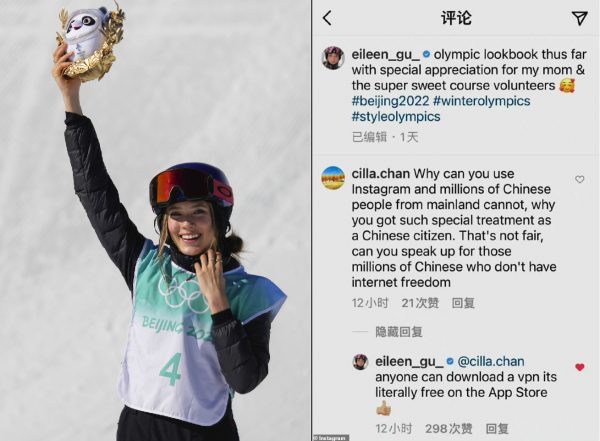
Chinese netizens on the mainland and overseas have complained bitterly about the authorities’ double standard of offering “special treatment” to foreign-born athletes with seemingly questionable loyalties. Netizens also contrasted the favorable situation of foreign-born athletes with the predicament of ordinary citizens, particularly those who have suffered persecution and deprivation. Some suggest that the athletes only made it due to “connections,” particularly in the case of Zhu Yi, the American-born Chinese figure skater who had an abysmal Games after several falls; Zhu Yi’s father Zhu Songchun is a leading artificial intelligence researcher who returned to China from America in 2020.
Others accuse the CCP and the International Olympic Committee of deception and lacking integrity with regard to the issue of dual nationality exceptions.
The CCP’s effort to use its new foreign-born athletes to win medals and national pride seems to have largely backfired. Eileen Gu’s gold medal finish placed the question of her nationality firmly in the spotlight and took some of the luster off her and the Party’s triumph. Zhu Yi’s two last-place finishes turned attention to whether she was allowed on the team due to politics rather than skill. Meanwhile, the China men’s hockey team was smashed 0-8 by a U.S. team built around college players on its Olympics debut, and has yet to win a match in its group.
Larry Ong is a senior analyst with New York-based political risk consultancy SinoInsider. He was part of the SinoInsider team that forecasted the 19th Party Congress and 2018 Two Sessions personnel reshuffles with a high degree of accuracy.



